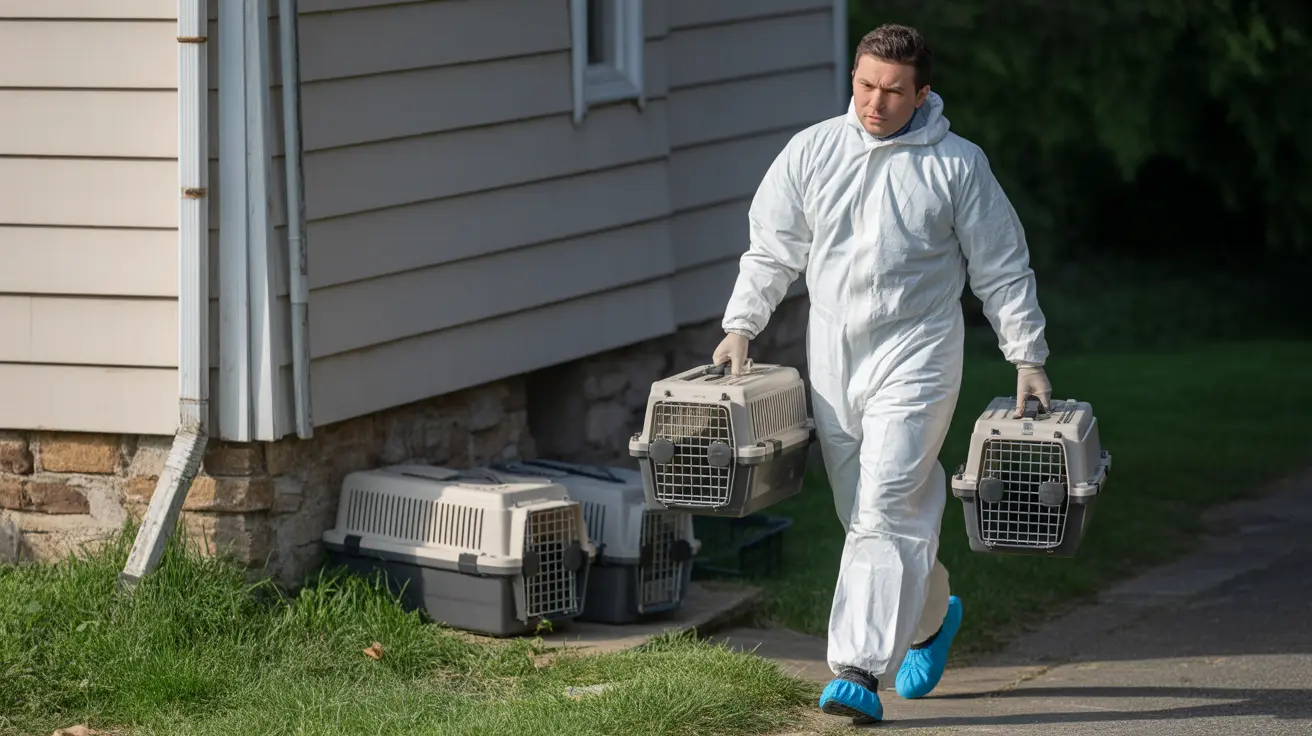RISPCA Animal Seizure Highlights Critical Need for Emergency Pet Care Planning
A significant RISPCA animal seizure operation unfolded in Central Falls, Rhode Island, when staff members from the Rhode Island Society for the Prevention of Cruelty to Animals responded to 382 Central Street on Monday. The incident, which resulted in 40 animals being removed from the property, is connected to a woman's death and underscores the critical importance of emergency planning for pet owners.
This case serves as a stark reminder for pet parents about the vulnerability of animals when their caregivers face unexpected circumstances. The seizure operation demonstrates how quickly beloved pets can find themselves in precarious situations without proper emergency preparations in place.
Rhode Island Animal Cruelty Laws Enable Swift Protection Response
Rhode Island animal cruelty laws provide RISPCA and law enforcement agencies with the legal authority to intervene when animals face neglect or abandonment. These comprehensive statutes ensure that animal welfare takes priority during investigations and emergency situations, allowing for immediate removal when pets are at risk.
The legal framework empowers animal protection agencies to act decisively, providing seized animals with immediate care while investigations proceed. This system helps prevent further suffering and ensures that animals receive the veterinary attention they may desperately need.
Animal Neglect Investigation RI Procedures Prioritize Immediate Care
When conducting an animal neglect investigation in RI, agencies follow established protocols to assess each animal's condition and needs. The 40 animals removed from the Central Falls property will undergo comprehensive health evaluations to determine the extent of any medical or behavioral issues.
These investigations often reveal complex situations where animals have been living in suboptimal conditions for extended periods. Professional assessment helps determine the specific care requirements for each rescued animal, from basic veterinary treatment to specialized behavioral rehabilitation.
Emergency Pet Care Planning Can Prevent Animal Abandonment
This incident highlights why emergency pet care planning is essential for every pet owner. Creating comprehensive plans that address potential scenarios—including owner incapacitation or death—can prevent pets from being left without care during crises.
Effective emergency planning should include identifying trusted caregivers who can step in immediately, maintaining updated veterinary records, and ensuring adequate resources are available for pet care. Pet owners should also consider legal arrangements that formalize these plans to prevent confusion during emergencies.
Veterinary Care for Seized Animals Addresses Complex Needs
Veterinary care for seized animals often involves addressing multiple health issues simultaneously. Animals removed from neglect situations may require spaying or neutering, treatment for parasites, dental care, and management of chronic conditions that developed due to lack of proper care.
Beyond immediate medical needs, these animals frequently require behavioral support to help them recover from trauma and prepare for eventual adoption. The rehabilitation process can be lengthy but is essential for helping animals transition to healthy, stable homes.
Animal Welfare Emergency Response Involves Multiple Agencies
Animal welfare emergency response requires coordination between various organizations, including RISPCA, local law enforcement, veterinary professionals, and court systems. This multidisciplinary approach ensures that both the legal and welfare aspects of animal protection cases are properly addressed.
The collaborative response helps ensure that animals receive immediate care while legal proceedings determine their long-term futures. This comprehensive approach protects animal welfare while respecting legal processes and property rights.
Pet Abandonment Legal Consequences Include Serious Penalties
Pet abandonment legal consequences in Rhode Island can be severe, particularly when connected to other criminal matters. Courts may impose possession bans lasting up to 15 years on individuals convicted of animal cruelty, preventing them from owning pets in the future.
These penalties reflect the seriousness with which Rhode Island treats animal welfare violations and serve as deterrents to prevent future cases of neglect or abandonment.
Frequently Asked Questions
What happens to animals seized by RISPCA during investigations related to owner death or neglect?
Seized animals undergo immediate health assessments and receive urgent veterinary care and behavioral support before being placed in foster or adoptive homes, prioritizing their welfare throughout the legal process.
What legal powers allow RISPCA and police to seize and protect animals in Rhode Island?
Rhode Island animal cruelty laws empower RISPCA and law enforcement to seize animals suffering from cruelty or neglect, provide for their care, and potentially transfer ownership if the original owner fails to reclaim or pay for care.
How can pet owners prepare for emergencies to prevent their pets from being abandoned in crises?
Pet owners are advised to create emergency plans including provisions for pet care during disasters or owner incapacity, as required under federal and state laws like the PETS Act, to ensure pets are not left unattended.
What are the consequences for individuals who fail to report a death or abandon animals tied to criminal investigations?
Individuals can face criminal charges for failure to report a death, and animals left unattended due to abandonment may be seized; courts may also impose possession bans of up to 15 years on convicted offenders to prevent future cruelty.
How do animal welfare agencies handle behavioral and medical issues in animals rescued from hoarding or neglect situations?
Agencies provide spaying/neutering, medical treatments, and behavioral rehabilitation tailored to trauma-experienced animals before adoption, recognizing the complex mental and physical health challenges in such cases.






